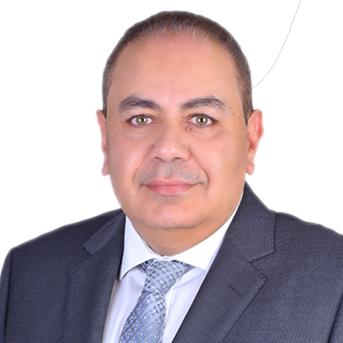Heart Attack - Symptoms, Signs, Causes & Treatment
Written By: Dr. Mohamed Fathi
Updated On:December 21, 2023

What is a Heart Attack?
A heart attack, or myocardial infarction, takes place when one or more arteries supplying blood & oxygen to your heart muscle become obstructed with fatty deposits or plaque over time. If this plaque ruptures, blood clots begin to form, which then block your arteries & cause a heart attack. A heart attack is different from a cardiac arrest, though both are medical emergencies that require immediate attention.
Heart Attack Symptoms
The most telltale sign of a heart attack will be the experience of pain in the chest that then travels through to other parts of the body. While heart attacks are often depicted as beginning with sudden & intense symptoms, more often than not, they will begin with only moderate discomfort or pain. Awareness of different heart attack symptoms is crucial, as a heart attack is one of the leading worldwide causes of death.
Early signs of Heart Attack
It is important to be mindful of early signs of a heart attack:
- Tightness of chest
- Circulated pain in arm, chest, neck, jaw or back
- Shortness of breath
- Sweating
- Coughing or wheezing, fluid build-up in lungs
- Anxiety, panic attack
- Nausea & vomiting
When to see a doctor for a Heart Attack
Heart attack symptoms may vary from person to person. They may also differ in terms of duration & order. In some cases, symptoms may last for days or occur on & off. If you or your loved one is experiencing early warning signs of a heart attack, please seek medical attention promptly. A heart attack requires immediate medical attention as it can result in death if not attended to. It’s important to get in touch with your doctor if any of the above symptoms manifest or begin to intensify – particularly extra tightness in the chest & shooting pains circulating the body.
Types of Heart Attacks
There are different types of heart attacks, & they can all have different outcomes. Some heart attacks can be fatal while others can lead to medication & lifestyle changes to avoid a recurrence.
Different types of Heart Attacks
-
STEMI
STEMI is characterized by the following symptoms:
- Pain in center of the chest
- Sharp pain in one or both arms, back, neck or jaw.
- Nausea
- Shortness of breath
- Anxiety
- Patient might feel light-headed
- Cold sweats
It is strongly advised to never delay seeking medical attention if you have suffered a heart attack as it can have serious long-term repercussions.
NSTEMI
Indicated partial blockage of the artery(s). A coronary angiography can accurately determine the degree of blockage. NSTEMI causes less heart damage but it is still a serious condition & needs to be treated accordingly
Coronary spasm, or unstable angina
Coronary spasm can be silent which makes it more dangerous. In other cases, it may result in a type of chest pain called angina which occurs under the chest bone or left side of the chest. If a coronary spasm lasts long enough & isn’t attended to, it can cause a heart attack.
- Type 1 heart attack: This is caused by a blood clot or a blockage in the artery.
- Type 2 heart attack: This is caused when there is insufficient oxygen & blood flow.
- Type 3 heart attack: This is a fatal heart attack that is later detected as the cause of death.
- Type 4 heart attack: Type four heart attacks are categorized into Type 4a heart attack; which is caused during a procedure called an angioplasty. Type 4b; caused when blood flow through a stent is obstructed by a blood clot.
- Type 5: This occurs during a coronary artery bypass surgery.
Causes of a Heart Attack
Sudden obstruction of blood to the heart is the fundamental cause of a heart attack. The risk of heart attacks can vary from one person to another, depending on their lifestyle & family medical history. Not all heart attacks are fatal, although the ones that are not usually lead to long-term, if not permanent, damage to the heart muscles.
The leading causes of a Heart Attack are:
- Coronary heart disease: This is when the coronary arteries are obstructed by bad cholesterol known as LDL (low-density lipoprotein) which causes a blockage in the blood flow & can eventually lead to a heart attack.
- Low levels of oxygen (hypoxia): If your lungs are damaged or if you are exposed to high levels of carbon monoxide, this will lead to a drop in oxygen in your blood, leading to a heart attack.
- Severely unhealthy lifestyle: Excessive amounts of saturated fat, tobacco, alcohol, sugar, & stress can lead to medical conditions that are at risk of leading to a heart attack.
Risk Factors for a Heart Attack
There are a number of risk factors for a heart attack, but three of the biggest are lifestyle, age & family history. Among the lifestyle risk factors, the US CDC singles out high blood pressure, high blood cholesterol & smoking as the most significant. While you cannot do anything about your age or family history, you do have the ability to change your lifestyle & lower your risk of a heart attack.
Here are four major risk factors for a Heart Attack:
- Hypoxemia: Low levels of oxygen in the blood.
- Pulmonary edema: Fluid build-up inside & around the lungs.
- Cardiogenic shock: In this condition, the patient’s BP (blood pressure) drops suddenly due to the heart’s inability to provide sufficient blood for the rest of the body to function adequately.
- Cardiac arrest: A heart attack & cardiac arrest are not the same things. During a cardiac arrest, the heart stops completely. However, a heart attack can lead to a cardiac arrest if not treated properly.
- Age: Individuals above 50 are more likely to experience a heart attack than younger people.
- Gender: Men are more likely to suffer from a heart attack at an earlier age than women.
- Heredity: If you have a family history of heart disease, you may be prone to developing one as well. It is extremely important to keep your health in-check & be fully aware of your genetic history.
- Smoking: Excessive tobacco consumption can put you at risk of having a heart attack.
Treatments for a Heart Attack
Treatments for a heart attack vary from person to person depending on their age, health condition & medical history. Medicines such as antiplatelet agents are often prescribed to break up blood clots. One cheap, over-the-counter & highly effective (according to studies) is aspirin, which can help avoid heart attacks.
Here are a few common treatments for a Heart Attack:
- Medications that help dissolve blood clots.
- Bypass or heart surgery to divert obstructions around the heart & help improve blood flow.
- A percutaneous coronary intervention, commonly known as a stent, which is inserted through a minor surgical procedure, restores blood flow towards the heart. The procedure is called angioplasty.
Medicinal treatment for a Heart Attack
- Aspirin: This thins the blood & manages blood clotting, controlling blood flow.
- Antiplatelet agents: These control the size of blood clots, preventing them from growing in size, while also preventing the formation of new blood clots.
- ACE inhibitors: These divert stress on the heart & decrease blood pressure.
- Beta blockers: These divert stress on the heart, decreasing blood pressure & easing the heartbeat. They can also control heart damage & prevent future heart attacks.
- Clotbusters: Also called thrombolytics, these eliminate blood clots.
- Heparin: This helps thin the blood & is administered via an IV or injection.
- Nitroglycerin: This helps boost blood flow & manage chest pain.
- Statins: These keep your blood cholesterol in check.
Chest pain & complications should never be neglected. Seeing a cardiologist well in advance can help prevent heart attacks & fatalities.
Surgical treatment for a Heart Attack
- Coronary angioplasty & stenting: During this surgery, a tube is inserted into a blocked artery, either through an artery in the wrist or groin. Another name for this procedure is Percutaneous Coronary Intervention (PCI).
- Coronary artery bypass surgery: This is often done as an emergency procedure when a heart attack occurs. In some cases, patients may need to wait up to seven days after a heart attack for this procedure to be conducted.
Heart Attack Complications
Heart attack complications are often a direct result of the damage sustained by the heart muscle during a myocardial infarction. However, the most frequently occurring complication is heart failure, which may result from a number of different cardiovascular diseases. Heart attacks may also disrupt the muscle’s electrical rhythm, causing arrhythmia, or lead to a build-up of fluids, as is the case with edema.
Common Complications from a Heart Attack include:
- Arrhythmia: When the heartbeat is irregular.
- Edema: Fluid accumulates over time, causing the ankles & legs to swell.
- Aneurysm: Scar tissue collects on the heart wall. This thins & stretches the heart muscle. This phenomenon eventually forms a sac, which can lead to blood clots.
- Angina: Insufficient oxygen towards the heart muscle, leading to chest pain & other complications.
- Heart failure: When the heart muscle can no longer pump properly, causing tiredness, labored breathing & edema.
- Myocardial rupture: This is a heart attack-related tear in the heart.
- Depression: This is common after a heart attack as it is a near-death experience. Engaging in positive activities, spending time with loved ones & support groups can help.
Prevention of a Heart Attack
Prevention is better than the cure when it comes to something as serious as a heart attack. Luckily, you can take a huge number of steps to lower your risk of having one. These are primarily focused on shifting towards a healthier lifestyle, mainly focused on dietary improvements, increased exercise, blood pressure & stress alleviation. Additionally, quitting tobacco & alcohol can significantly reduce your risk of having a heart attack.
Here are a few ways you can lower your risk of a Heart Attack:
- Choose a healthy lifestyle, especially on the dietary front
- Avoid or quit smoking
- Regular exercise
- Manage stress levels
- Limit alcohol intake
- Maintaining a healthy body weight
- Manage cholesterol levels
- Manage diabetes
At Medcare, we offer an array of advanced interventional & preventative cardiology treatments. Book an appointment today.
Meet our doctors from the Cardiology department























